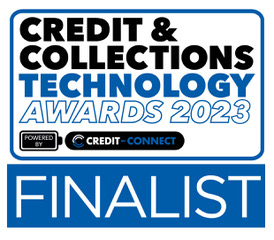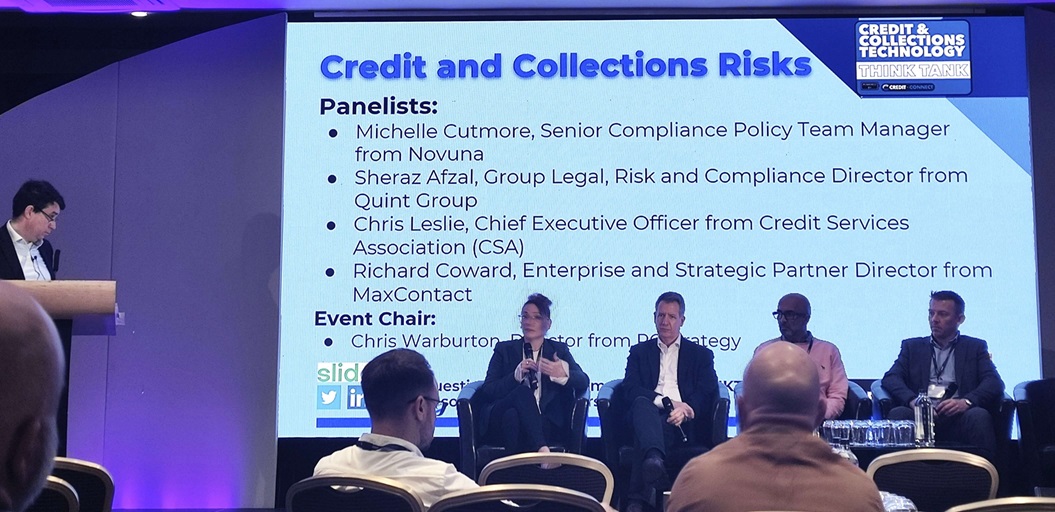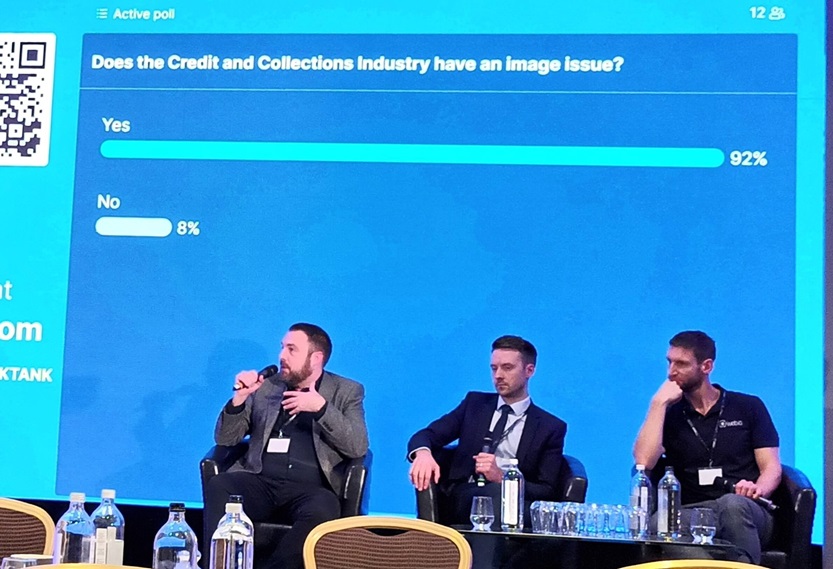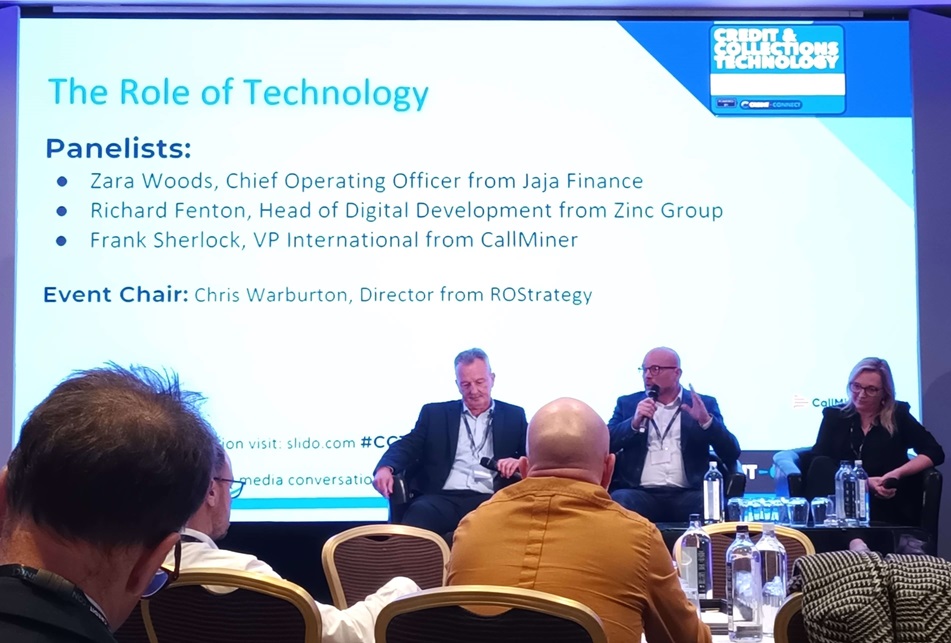 The Credit & Collections Technology Awards hosted by Credit Connect is more than just a celebration, The Technology Think Tank panel discussion is a plunge into the future. An innovative and one-of-a-kind event that aims to provide an engaging atmosphere in which all attendees may learn about upcoming technology breakthroughs. During the event industry expert professionals discuss, debate, and deconstruct regulatory and thematic business difficulties, as well as the advantages of technology innovation.
The Credit & Collections Technology Awards hosted by Credit Connect is more than just a celebration, The Technology Think Tank panel discussion is a plunge into the future. An innovative and one-of-a-kind event that aims to provide an engaging atmosphere in which all attendees may learn about upcoming technology breakthroughs. During the event industry expert professionals discuss, debate, and deconstruct regulatory and thematic business difficulties, as well as the advantages of technology innovation.
My DSO Manager was selected as a finalist in two esteemed categories of #CCTechAwards2023 :
• Best Use of Technology in Credit & Collections
• Digital Business Transformation
by the Awards Judging Panel and was also present during the Think Tank.
Think Tank Sessions
Session 1: Credit and Collections Risks
The first session delved into the realm credit and collections risks - The influence of living costs and regulations such as customer responsibility on corporate transformation and tactics. How will the industry deal with increasing interest rates and soaring inflation? How can the credit, and collections industries collaborate to improve client outcomes?
Speakers: Chris Leslie from Credit Services Associations (CSA), Michelle Cutmore from Novuna. Sheraz Afzal from Quint. Richard Coward from MaxContact.
During the first session, an exciting idea emerged: the delicate balance of choice and client involvement. According to the panelists, while giving clients additional options may seem reasonable, it might surprise increase the likelihood of non-sales. As the discussion progressed, a dynamic viewpoint on product diversification questioned the concept that developing several variants of a product inevitably improves consumer happiness. If a product is sufficient in and of itself, offering variants may eliminate the element of choice, encourage customers to seek alternatives elsewhere, and ignite a lively debate on customer preferences and decision-making dynamics.
Despite these issues, the topic effortlessly transitioned into the world of Credit Management, a field that is fast expanding with the incorporation of Artificial Intelligence. Credit management procedures are about to undergo a revolution, according to industry professionals who are known for adopting technological innovations. Monitoring discussions and exchanges is one of the next Credit Management methods. All of this is targeted on reproducing ideal talks in order to improve cash collection. This remark emphasized the growing reliance on AI to expedite credit processes.

The AI debate went beyond operational improvements. AI has the capacity to restore power to customers. Understanding a client's psychology is difficult; AI can anticipate and adapt to their state, ensuring interactions are not obtrusive, underlining the necessity for technology to communicate with clients empathetically.
This conversation grew into a sophisticated examination of artificial intelligence's function in corporate management and the natural reluctance to provide sensitive financial data. One of the emphasized features was the persistent unwillingness to provide customer portfolios and financial data. "It's not a new risk; it's a perennial concern whenever a new tool emerges," the panel experts agreed, recognizing the difficult balance between exploiting technology and protecting sensitive information.
Despite technical advances, the panelists did not lose sight of the human factor. They went on to say, "People are unpredictable; they are the fundamental systems that can truly help understand customers beyond technological frameworks." Resonating the idea that AI, although a formidable friend, should supplement rather than replace human knowledge.
AI is a driver, a tool that empowers customers and enterprises. It provides access to complicated knowledge, easing previously overwhelming complexity. However, the core of knowing client’s rests in the delicate combination of technology and human empathy, which goes well beyond algorithms and data points. In the middle of discussions on interest rates, inflation, and industry partnerships, the event developed into a lively discussion about the harmonious interplay of technology and the human touch in producing meaningful client results.
Session 2: Assessing Affordability and Customer Vulnerability
The impact of customer vulnerability on the collection environment. Collections that are more egalitarian and ethical are being evaluated. The importance of identifying customers at risk and assessing affordability to enhance their experience and corporate performance. Can businesses effectively identify and treat vulnerable or financially troubled customers?
Speakers: Anne Atherton from Blue Motor Finance, Vanessa Northam from StepChange, Louise Allemagne from Lending Standards Board.

In the world of credit management, where the ups and downs of funds regulate the corporate rhythm, ethics stands tall as an unbreakable compass. It's about more than statistics and transactions; it's about getting to the core of a client's financial issues. The principle of ethical credit management often takes us down the road of empathy, as we endeavor to disentangle the tangled strands of financial concerns that customers bear.
Consider the echoes of Payment Holidays, a fresh ethical idea created in the United Kingdom amid the stormy tides of the Covid period. A concept derived not just from economic methods, but also from a thorough grasp of people's and businesses' struggles. It wasn't just a payment suspension; it was a breather in the middle of pandemonium.
However, amid this complex terrain, a conflict sometimes develops - the battle between technology and the human touch. While technology helps to speed operations, it often falls short of reproducing the emotional connection that a human touch develops. We appreciate the importance of engaging clients from the start, realizing that the first step in creating trust is actual human connection rather than algorithms.
Herein lays the paradox: the emergence of AI, a technological wonder, is poised to aid in credit management. It's a tool for increasing efficiency, forecasting trends, and analyzing historical data. However, it is critical to underline that, despite its capabilities, AI cannot replace the human element. Data, although a rich mine of historical patterns, cannot encompass the complexities of human susceptibility. Customers aren't merely dangerous or susceptible entries in a database! Their worries, anxieties, and ambitions may be found in the interaction, in the discourse.
In this credit management story, ethics and the human touch coexist, technology dances with engagement, and AI works as an ally rather than a substitute. The essential core of managing credit responsibly, empathetically, and successfully is found in this delicate balance.
Session 3: Communication the Value of Customer Engagement
Communication the Value of Customer Engagement – Exploring the benefits of real customer interaction via the integration of people and technology to get the greatest customer engagement results. How can engagement be employed such that it serves the best interests of customers?
Speakers: Michael Allison from Roma Finance, Chris Fitch from Money Advice Trust, Jonathan Shaw from Sigma, Andy Turner from Webio.
Discussions on improving client involvement often avoid a word with negative connotations: "collection." However, forward-thinking companies are considering incorporating it into their cultural fabric. They see it as a possible comfort blanket for operational improvement rather than a jarring phrase.

Recognizing the importance of digital platforms, these companies see them as more than just transactional media. They want to use these places to facilitate meaningful talks, expanding involvement beyond simple purchases. At the same time, they recognize the need of smoothly integrating credit and collection into their processes. It's not only about collecting debts; it's about naturally incorporating these elements into the customer relationship journey.
In these discussions on effective engagement with clients, one conclusion appears: interpersonal interaction combined with technology skills is critical. Customer satisfaction is dependent on this mix.
A key issue is central to their consideration: How can involvement best serve the interests of customers? They recognize that the solution resides not only in innovative strategies but also in the intentional integration of all company aspects, even those clouded by unfavorable views.
While developing an optimum customer strategy, these companies recognize the need to reshape views while avoiding difficult phrases. Their emphasis is on redefining these notions inside frameworks aligned with customer-centric goals—an approach that accepts evolution while retaining basic principles.
Session 4: The Role of Technology
What impact will open banking, AI, and machine learning have on credit and collections? The importance of striking the right balance between humans and technology. What are the disadvantages of technology? The importance of data and analytics.
Speakers: Zara Woods from Jaja Finance, Richard Fenton from Zinc Group, Frank Sherlock from CallMiner.

As we sat among specialists debating the prospects of financial services, the debate bounced back and forth between the appeal of technology and the delicate balance it requires. It was a story about why organizations are drawn to technology—the promise of cost savings and line with the needs of clients.
The panelists stressed the importance all digital and customer service centers readily available to clients. However, they warned against the possible harmful consequences of this endeavor, recommending a conscious balance between human touch and technology skill.
Data and analytics have emerged as the key enablers of this technological transformation. The resonance of technology in this symphony of AI and machine learning must harmonize with consumer requirements, cost-effectiveness, and the essence of human connection in every digital contact.